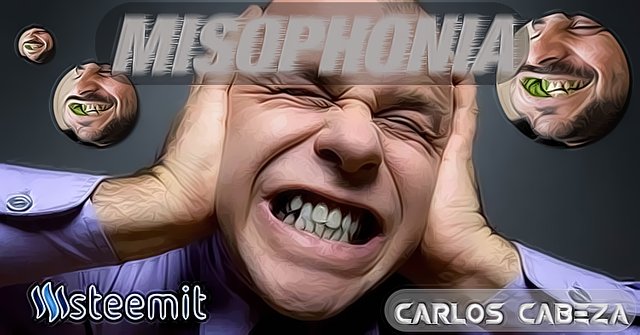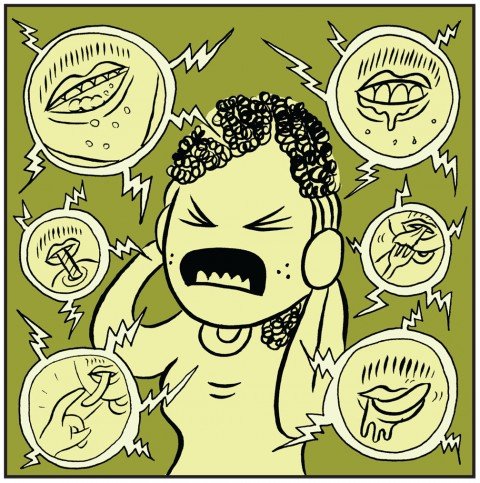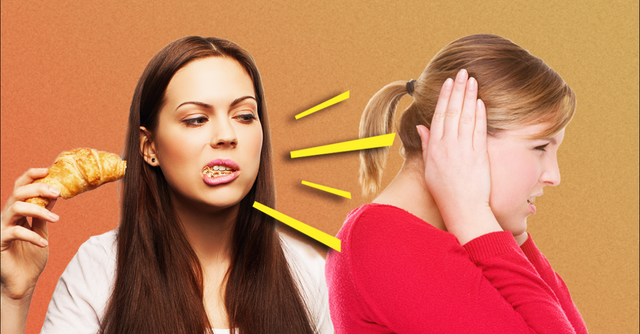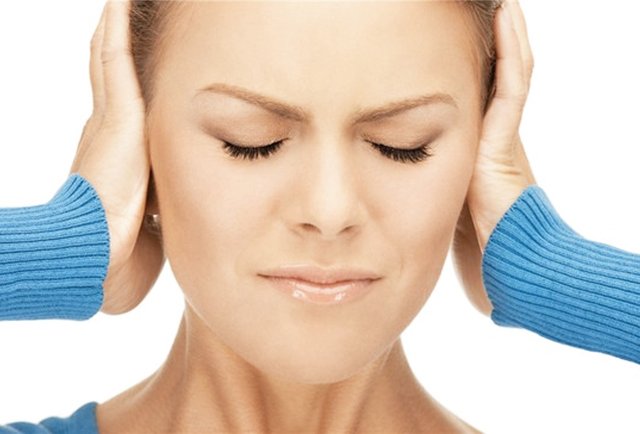

A big greetings to all my readers, in a previous article I talked about phobias, a neurological disorder that makes us fear objects, things or situations that does not necessarily represent a real danger, producing an exaggerated reaction of fear.
Now I will tell you about a similar problem, but that has its origin in the sounds, and the reaction that some people have towards some of them.
It is closely related to Hyperacusis and Phonophobia. That makes some people intolerable to particular sounds made by other people or objects. It has the name of MISOPHONIA, this term was coined by the American doctors Pawel and Margaret Jastreboff in year 2011, and its literal meaning is "Hate to the Sound".

This neurological disease is associated with the syndrome of obsessive-compulsive personality disorder that leads people who suffer from it to suffer irritability, aggressive behavior and even panic to everyday sounds such as that produced by a person when chewing, breathing, swallowing , The dripping of an open wrench, etc.
Not necessarily the sound must have a special physical characteristic, or they do not have to be very strong, very sharp, or very serious.
This is the deference of Hyperacusis, which produces intolerance to loud sounds. In fact, the sounds that produce these symptoms have a much lower intensity than a normal conversation between two people, about 40 to 50 decibels.
Misophonia is associated with negative emotions related to the particular sound that detonates the body's irrational reaction. Causing, according to some studies, an intense and exaggerated response of the autonomic nervous system, together with the limbic system, also produces an abnormal hyperactivation of the auditory system.

To get an idea of how a person feels with this condition, imagine being listening to the sound that occurs when they scratch a blackboard, for most it is an irritating and sometimes unbearable sound, well, the person with Misophonia has that Feeling much more intense, and worse, by any particular sound that triggers the reaction. Now imagine all the days of your life feeling like this, listening to sounds present in your day to day.

How does Misophony work?
Surely we wonder, because some people react wrongly to a particular sound, and others perceive it as something normal or unimportant.
Well, we have to understand how the body processes these sounds at the brain level; When the human body perceives certain sounds, the ear transforms it into an electrical impulse, and the brain processes it through the neurons that form the nerves. Subsequently, it is interpreted in different ways by the brain, giving it importance or not. If our brain decides that it is not an important sound it will be as if we did not hear it.
This is produced by our experience, to select the sounds that are cause for alert or danger, such as the sound of a shot, which immediately reacts to the body and becomes ready to "fight or flight", increasing adrenaline, Anxiety and heartbeat.
What the Misophonia does is put the body in a state of alert or "fight or escape", listening to sounds as common as chewing, talking, etc. Symptoms appear as aggression, irritability and anxiety.
In many cases the Misophonia can alter your life in an important way, and triggers several psychological problems, since when reacting aggressively to some auditory stimulus, it tends to avoid these multiple situations, and the person is isolated, and stops having relationships Interpersonal and get involved with their social and family environment.

Symptoms of Misophonia
To identify these symptoms we have a list of some of them:
Cold Sweat, Tachycardia and Anxiety.
Discomfort, dislike and irritability.
Panic attack.
Need to flee from the source of sound.
Aggressive behavior towards the person or object that produces the sound.

Although any sound can detonate negative reactions in the individual, there are some in particular that makes the majority of those affected with this problem have such irrational behavior.
Nose Sounds: The sounds produced by the nose are sounds that irritate the person with Misophonia, such as sneezing, wiping the nose with a tissue, the sound of air passing through the congested pathways, etc.
Sounds of the Mouth: When we eat we produce in sound by chewing, by chewing a gum, when they absorb soup from a spoon (This for me is the most shocking that exists when eating). Yawning, kissing, etc. All these sounds are potential detonators of the Misophonia.
Voices: When speaking some people emit sounds, in the form of whistles or whistles, these are frequent stimuli of people with Misophonia.
Environmental Sounds: Daily sounds such as wrinkling paper, the click of a pen, the sound of a computer keyboard when typing, Tic Tac of a clock, the alarm of a car and a long etc. All these sounds stimulate the reactions of the Misoponics.
Visual Stimuli: There are also reactions to some repetitive visual stimuli such as twisting the hair compulsively, watching someone chew ... And any other repetitive movement.

The causes that produce this neurological disorder seems to be a mystery, it is said that it is linked directly with the negative experiences in childhood, which conditions the person to develop Misophonia. These experiences are associated with negative emotions to particular sounds.
In addition, because it is linked to the auditory stimulus, and how the brain interprets it, several researchers propose that Misophonia should be treated as a Psychological disorder, and should be included in mental disorder diagnosis manuals in order to be able to easily treat and identify this Anomaly and develop research programs based on documented studies.

Known Treatments
Due to their mystery in the source of the problem, alternative solutions are sought for their effective treatment, of which we can mention:
Cognitive Behavioral Therapy
This method seeks to control the levels of anxiety in the patient, which will teach him to watch progressively at the time of experiencing the symptoms that produce the sounds.
It is applied by exposing the person to stimuli progressively (gradual exposure therapy) until the body no longer reacts to them.
Hypnosis
Hypnosis seeks to work the subconscious of the individual, seeking that the disturbing sounds no longer produce a reaction of threat, irritability or annoyance. Reducing the symptoms that occur.
Relaxation Techniques
Using these techniques we can reduce the stress levels of the patient, which helps them to reduce symptoms; The most common are Yoga, Meditation, Breathing Exercises and Relaxation.
Possibly these methods do not definitively cure the person suffering from Misophonia, but they help to a certain extent to deal with the symptoms produced by this, and to be able to have a more comfortable life

There is a website where you can take a test, it is useful to know if you suffer from Misophonia:
TEST


Is this why when I hear a certain persons voice and want to rip out my ear canals?
Downvoting a post can decrease pending rewards and make it less visible. Common reasons:
Submit